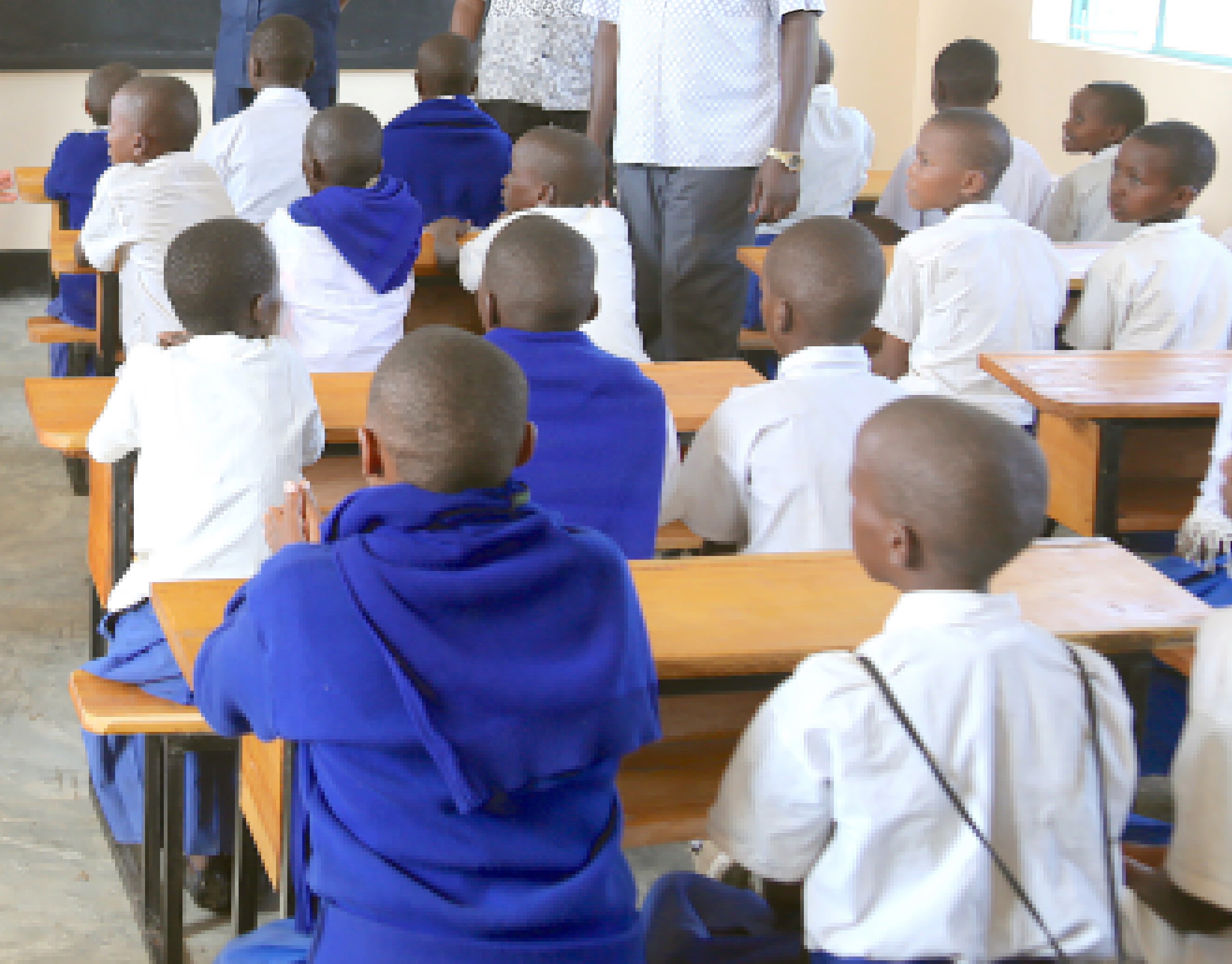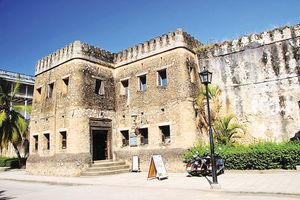Prime
Education: Inside Tanzania’s quest to plug quality assurance gaps

Quality assurance, the backbone of educational standards worldwide, is undergoing a transformative overhaul in Tanzania, with the government taking measures to ensure that schools in the country conform to the highest standards. PHOTO | FILE
What you need to know:
- Quality assurance, the backbone of educational standards worldwide, is undergoing a transformative overhaul in Tanzania
Dar es Salaam. Quality assurance, the backbone of educational standards worldwide, is undergoing a transformative overhaul in Tanzania, The Citizen can report.
After years of shortcomings in upholding and monitoring the standards, the government has unveiled reforms to close gaps that have long hindered progress in the education sector.
Speaking about the challenges, the Director of Quality Assurance at the Ministry of Education, Science and Technology, Mr Ephraim Simbeye, said, “Quality assurance is the backbone of any robust education system. We are taking decisive steps to ensure that our schools and institutions meet the highest standards.”
Introduced through the Education Act No. 25 of 1978, amended in 2002 and further in 2017, the quality assurance system aimed to modernise school inspections. The 2017 amendments mandated that quality assessors visit at least 25 percent of schools annually.
However, a recent survey in Dar es Salaam, Dodoma and Shinyanga revealed that only 14 percent of schools are visited yearly.
“In some areas, schools are assessed just once every four years,” said the Executive Director of HakiElimu, Dr John Kalage. “This is far from the intended frequency, leaving schools without external oversight for prolonged periods.”
The absence of regular evaluations has left many schools struggling with overcrowded classrooms, outdated teaching materials and dilapidated facilities.
A headteacher in Mpwapwa, Mr Charles Samson, lamented, “In the three years I’ve been here, no quality assurance team has visited our school. Without oversight, deteriorating infrastructure and poor teaching standards go unnoticed.”
The neglect contradicts the Tanzanian Constitution, which guarantees every citizen the right to education. Articles 11(2) and 11(3) obligate the government to provide equal and adequate educational opportunities.
However, without quality assurance, schools often operate below standard, compromising students’ right to a quality education.
One of the most pressing issues is the lack of specialised quality assessors. A 2023 report by the Controller and Auditor General (CAG) highlighted significant gaps in assessing inclusive education. Of the total quality assurance personnel, only 98 are qualified in special education.
“This shortage limits our ability to assess and improve schools’ capability to support students with special needs,” a quality assessor disclosed anonymously. Schools catering to students with disabilities remain unevaluated, leaving vulnerable children without the resources and support they deserve.
Reforms in progress
The Ministry of Education, Science and Technology is addressing these challenges through targeted reforms. Key among these is the recruitment and training of additional quality assurance officers.
Mr Simbeye explained, “We currently face a shortage of officers, which hampers our ability to monitor schools effectively. To address this, we are prioritising recruitment and capacity-building programmes.”
Training programmes aim to equip officers with modern skills, including using digital tools for data collection and analysis. This will enable assessors to identify issues promptly and recommend targeted interventions. “Our goal is to enhance teaching and learning outcomes across all schools,” said Mr Simbeye.
The ministry is integrating technology into the quality assurance process through a digital monitoring and evaluation system. The system will allow real-time tracking of school performance indicators and enable schools to submit reports electronically.
“With this system, schools will receive faster feedback and interventions will be more targeted,” said Mr Simbeye. The technology will also help harmonise data from various government agencies, providing a comprehensive view of the education sector’s strengths and weaknesses.
Recognising the shared responsibility of education, the ministry has initiated consultations with teachers, school administrators, parents and development partners. These discussions aim to gather insights and build consensus on the reforms.
“Education is a shared responsibility,” Mr Simbeye remarked. “We are working closely with all stakeholders to ensure that our policies and interventions are practical and impactful.”
Teachers, as the primary implementers of educational reforms, are receiving special attention. Professional development opportunities and efforts to create a more enabling working environment are in the pipeline.
While the government’s commitment to quality assurance is evident, resource constraints remain a significant hurdle. Schools, particularly in rural areas, struggle with inadequate infrastructure and teaching materials.
“We are aware of these challenges and are working to allocate resources more equitably,” Mr Simbeye assured. Partnerships with the private sector and non-governmental organisations are being sought to mobilise additional resources, ensuring the sustainability of quality assurance efforts.
Other countries offer valuable lessons. Kenya’s School Improvement Programme, which mandates routine visits by school inspectors, has resulted in measurable gains in student performance and school attendance.
Finland’s peer-review model, where teachers conduct assessments, has fostered a culture of continuous improvement.
“By learning from these models, we can enhance our quality assurance mechanisms,” said Dr Kalage.
Expert perspectives
Adding to the discourse, a renowned education policy expert, Ms Martha Ndege, emphasised the need for a holistic approach.
“Quality assurance is not just about monitoring and evaluation; it’s about fostering a culture of accountability and continuous improvement. Tanzania’s reforms must address the root causes of systemic inefficiencies, such as teacher shortages and unequal resource distribution.”
An education technology specialist, Dr Hassan Mwasimba, praised the government’s initiative to incorporate digital tools into quality assurance.
“The use of technology will revolutionise how we monitor schools. Real-time data collection and analysis will allow for evidence-based decision-making, ensuring timely interventions.”
He added, “To make this work, however, there must be consistent training for both quality assurance officers and school administrators to ensure effective implementation.”
In addition, an advocate for inclusive education, Ms Gladys Komba, highlighted the importance of addressing the needs of students with disabilities.
“Inclusive education must be at the heart of these reforms. The current shortage of assessors qualified in special education is alarming. Investing in training and hiring more specialised personnel is critical for ensuring no child is left behind.”
The reforms aim to directly impact students’ learning experiences and outcomes. Improved quality assurance is expected to enhance teaching practices, boost academic performance and produce well-rounded graduates prepared for the challenges of the 21st century.
“Our ultimate goal is to prepare students for future success,” affirmed Mr Simbeye. “By improving quality assurance, we are laying a strong foundation for their development.”
Communities will also benefit from a revitalised education system, which plays a crucial role in social and economic development. Parents and local leaders are urged to support these efforts by participating in school activities and holding institutions accountable.
Looking ahead
As Tanzania embarks on this transformative journey, the government’s focus on quality assurance signals a promising shift toward achieving its education goals under the national development framework.
“We are not just addressing the challenges of today; we are building a system that can adapt and thrive in the future,” concluded Mr Simbeye. “Quality assurance is a journey and we are determined to stay the course.”
The success of these reforms will depend on sustained investment, collaboration and a shared vision for a better education system. For now, the government’s efforts represent a critical step forward in ensuring that every Tanzanian child receives the quality education they deserve.





